---------------------------------------------------------
More and more people are enjoying the fun of having a hobby farm right in their backyard! The good news is that when you are ready to add some critters to your backyard farm there are several that can live happily in smaller spaces.
Chickens
Chickens are often called “the gateway livestock”. You think you will just get a couple of chickens to poke around the garden. Before you know it you have a whole barnyard full of animals! Chickens are the first farm animal many people start with for good reason.
Chickens are small which makes them ideal for beginners. An 8-pound chicken is much easier to handle than a 1500-pound dairy cow! They don’t require a ton of care & are not expensive to keep (click here to read about chicken expenses). Make sure they have fresh water, food & clean shelter and that’s about it. The level of care is pretty similar to keeping a cat. But cats don’t give you eggs!
Eggs are such a staple in most kitchens, keeping a few chickens and having constant delicious fresh eggs is very rewarding! In a small 5 foot x 8 foot space, you can keep a flock of 3 hens which can provide your family with at least a dozen eggs per week. The benefits of keeping chickens doesn’t end with eggs. Chickens love to eat insects like ticks that terrorize your yard, they love to finish off kitchen scraps like pasta and veggies, and they give you tons of rich manure for your compost bin & garden! Click here to browse through all my chicken-keeping articles!

Rabbits
Rabbits are an animal that are often overlooked by the casual, hobby backyard farmer. Most assume that a rabbit’s role on the farm is to provide meat and many hobby farmers are not interested in keeping up with the demands of managing breeding rabbits & processing meat. But rabbits are raised by many farmers for more than just meat (including me)!
Rabbits produce a large amount of manure. I know that sounds like a negative, but for the avid gardener, it certainly is a positive! Rabbit manure is amazing for both flower & vegetable gardens and unlike chicken manure, it doesn’t have to compost first and can be used right away. Click here to read more about using rabbit manure in your garden.
Because rabbits are commonly kept as pets you can often find things like feed & litter at a local pet store rather than having to search out a farm & feed store. Your local veterinarian can also likely treat any medical issues that might crop up.
Rabbits are really smart & can be litter box trained to make cleaning chores easier. They don’t require a huge area, in a space that is about 7 foot x 8 foot you can set up a wonderful little area for a pair of bunnies to enjoy & explore. Rabbits are a quiet animal you can easily keep without bothering anyone even when you have close neighbors.
If you are looking for “farmy” benefits beyond compost, look into keeping wool-producing fiber rabbits like Angoras. Just a couple of angoras can provide you with plenty of fiber for spinning & knitting! Click here to browse through all my rabbit-keeping articles
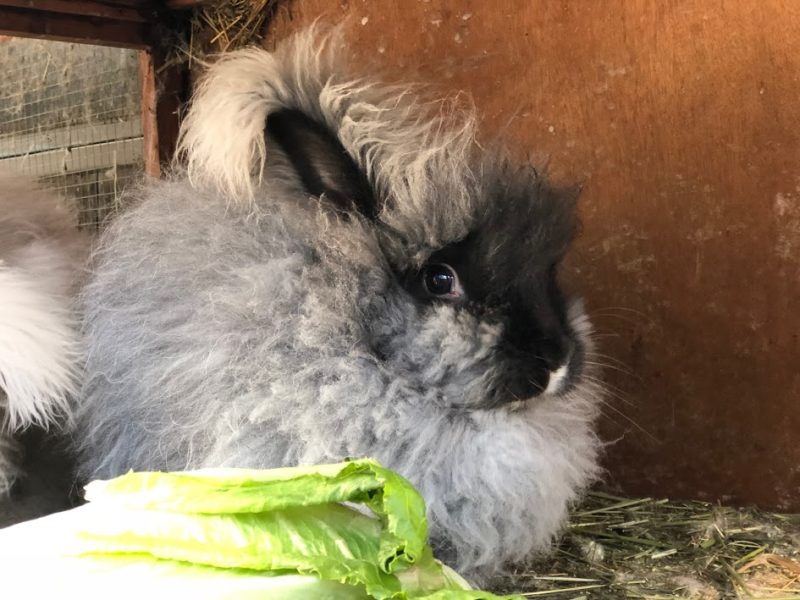
Bees
Bees are an amazing, low-maintenance addition to your backyard farm. After the initial investment of the hive and other bee-keeping equipment, bees are less expensive to keep than many other farm animals. Typically, beekeepers will provide sugar water as a backup food source for their hives, but for the most part, your bees will be foraging for their own food up to 5 miles from your property.
Beekeeping is not an everyday chore, unlike having to feed & water traditional farm animals like chickens or rabbits. A couple of monthly hive check-ins and a few in-depth cleanings and inspections per year – for the most part bees manage themselves.
Honey is the most obvious benefit of keeping bees. The output of a standard hive can vary greatly depending on many different factors, but on average you can expect about 20-30 pounds of honey a year from just one hive! Keeping bees also greatly benefit your garden. Bees will forage all over the neighborhood, but they will definitely spend plenty of time right in your yard pollinating your vegetables & flowers making for bigger harvests and better blooms!
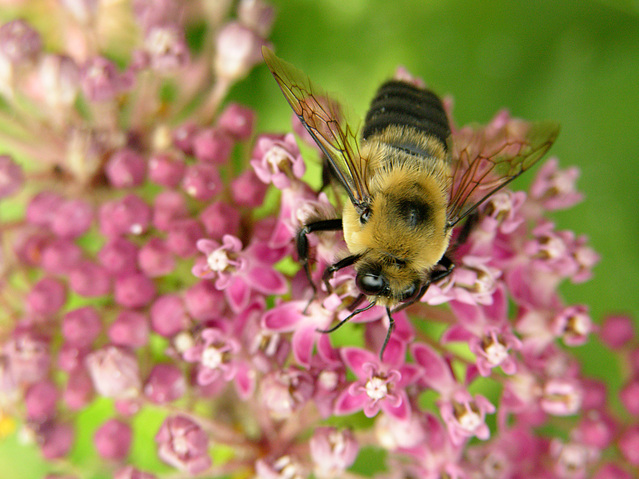
Ducks
Ducks can easily be kept in a small backyard farm. Contrary to popular belief, you don’t need a huge pond in your yard to keep them happy. Domestic ducks, unlike their wild relatives, spend most of their time on land. A small kiddie pool is always appreciated for splashing about but isn’t necessary. Click here to read more about backyard duck ponds
Duck eggs are highly prized by bakers because of the light & fluffy texture they give to baked goods. Ducks lay nearly as many eggs as chickens and are often sold for more than twice the cost of free-range chicken eggs, so they can really more than pay for their upkeep. Click here to read more about duck eggs
Ducks need just about as much space as chickens do. They are much easier on gardens and lawns than chickens because they are not constantly scratching, pecking, and digging at the ground. Any standing water or puddles are going to become big mud puddles, however! If you are already keeping chickens, ducks can make an easy addition to your flock, living right alongside their poultry cousins. Click here to browse my duck-keeping articles
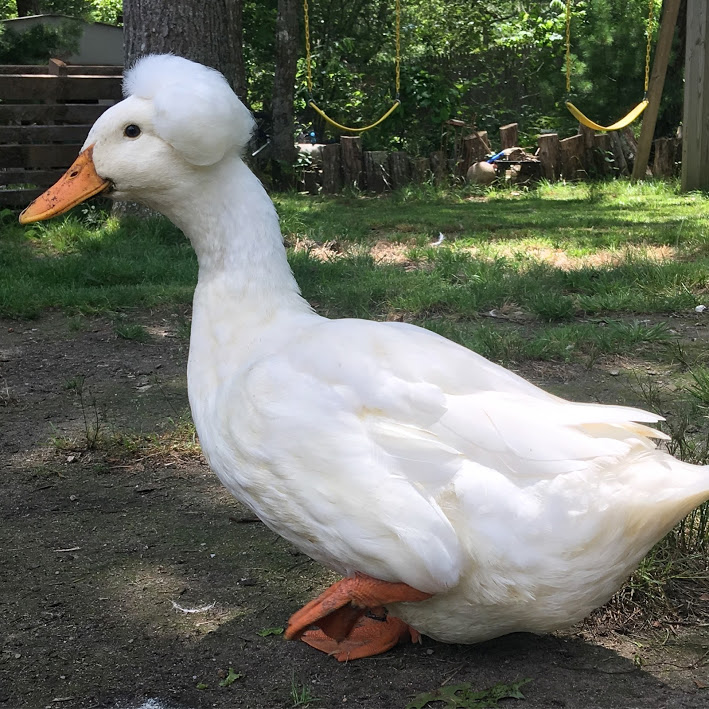
Mini Goats
Super cute and super tiny Pygmy & Dwarf goats are perfectly backyard sized! Pygmy goats only grow to half the size of a typical goat breed (about 60 pounds, the size of a medium dog). In a 15 foot x 25 foot space you can set up an area for two mini goats (of course if you can give them a bigger area, these little adventurous and sometimes mischievous animals would very much appreciate it!). You will want to build some solid fencing to keep them in as they can be escape artists but they can be a lively & fun addition to any backyard farm.
Despite their small size, they can be used for meat, but most backyard farmers keep them for other purposes. Goats provide excellent manure for your garden. Nigerian dwarf goats are excellent milkers, with the average doe producing up to 2 pounds of milk per day! If you aren’t interested in breeding and keeping up with daily milking routines, Pygora goats (a mix of pygmy and angora goats) are adorable little fiber producers. Pygoras yield a silky cashmere & mohair fiber that can be spun & knit into super warm clothing for you and your family.
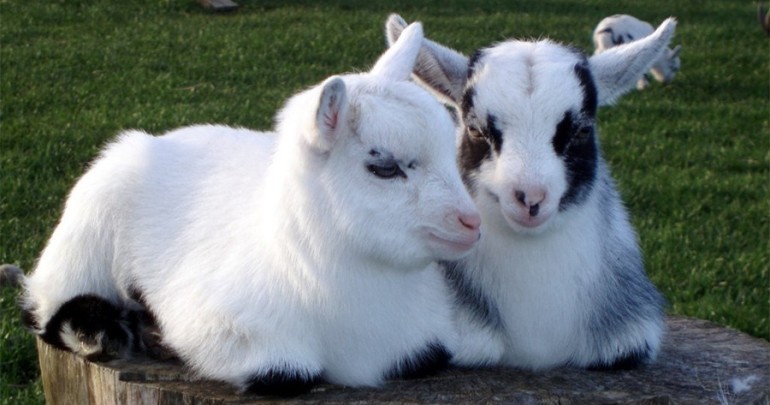
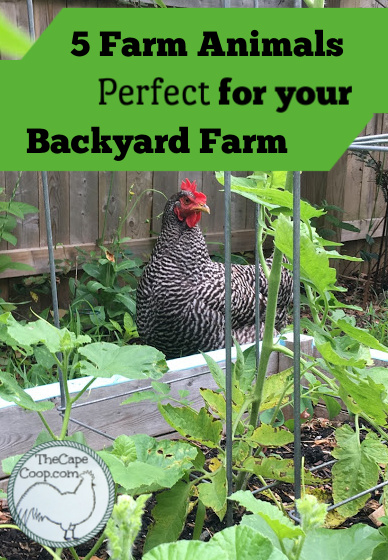
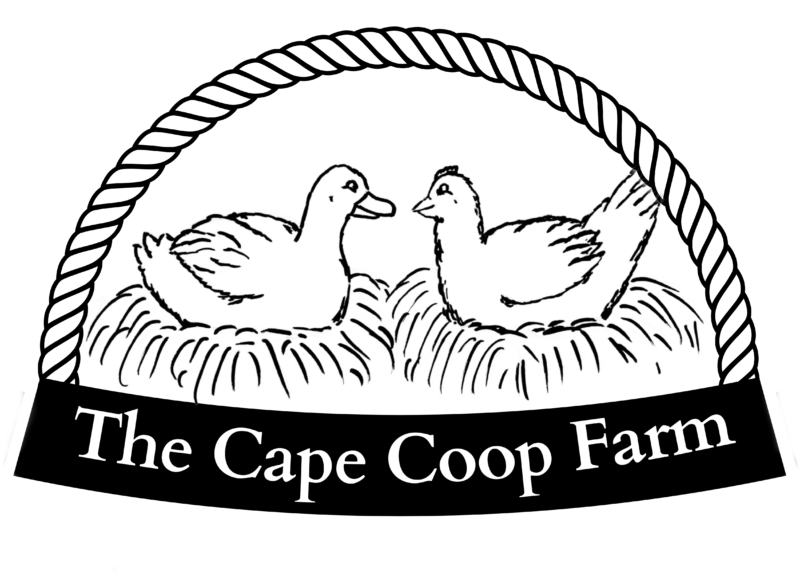
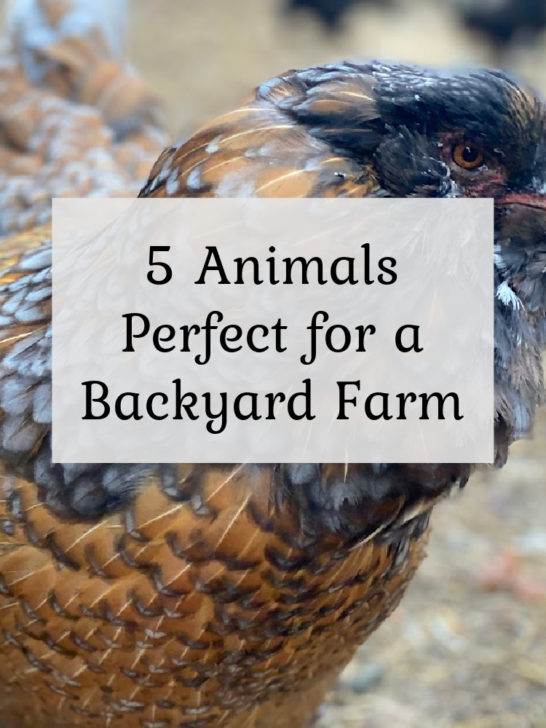


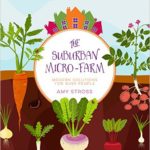

Jessi
Sunday 10th of March 2024
I’m currently looking to get back to owning goats again. Growing up on a 5 acre farm, we were very into the different clubs with The Oakland County 4-h fair and shows. We had everything from Horses, ponies, goats, dogs, cats, rabbits, chickens/ducks, lizards, birds, rats, guinea pigs (just no cows,pigs,sheep) Out of the “farm animals” I mostly enjoyed the horses/ponies and the goats (breed type: LaMancha’s & Nubians). My sister and I would have our herd “5 goat’s” out in the yard playing with us, whenever we would run all our goats would follow right along running n jumping with us. They’re so friendly and smart. They have unique personalities to say the least, I always say goats are basically like a dog mixed with a deer haha
Liz
Wednesday 13th of March 2024
Goats are awesome! We have Nigerian Dwarfs, they are so fun and full of personality!
Carolyn Arnister
Tuesday 26th of February 2019
Hi Liz,. I love your article. You have a nice set up. We keep two hens, and two rabbits. We converted our a previous "bundominium" into a "hendominium". Buns are indoor. The hens free range for a small amount of time during the day. We wonder if we should let them out most of day but afraid of hawks and racoons. Yard is totally fenced.
Liz
Tuesday 26th of February 2019
Free ranging is always such a tough decision, a balance between keeping them safe and letting them be free. We definitely have a healthy hawk population here and I have lost several girls to hawks over the years. It is always hard and makes me second guess our decision. But we do let the chickens and ducks free range all day long in our fenced yard. I think overall they have a better life being able to explore and peck and scratch about. I've planted lots of bushes and there are lots of trees and a brush pile where they can take cover. We also have a rooster who helps warn everyone when a hawk is circling. Recently we also have a huge flock of crows that must be nesting nearby because all winter anytime a hawk is nearby the crows all come out and loudly chase the hawk away. Maybe it will make me feel a little better about sharing my garden with them this summer!
WT Abernathy
Wednesday 13th of February 2019
Hi Liz! This is a great list, and one that is practical as well.
We keep chickens, both meat and eggers, and will be adding two bee hives in this spring.
Nigerian dwarfs are on the table, but not until we have a little more experience under our belts and the new barn to house them.
Thanks for a great read!
Magi
Wednesday 13th of February 2019
Great list! We keep chickens, ducks, and rabbits on our half acre. We haven't succeeded with bees yet (mites killed them), and we'll have to improve our fence building skills before we attempt goats!
Liz
Wednesday 13th of February 2019
It's always a learning curve whenever you add new animals! Bees are definitely next on my list!